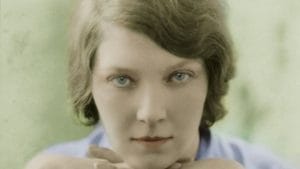6-8 September 2011
Edwin Morgan Writing Centre, University of Glasgow
For the 2011 conference, a cohort of Ford scholars followed The Good Soldier’s Nancy in going to Glasgow. Held in the Edwin Morgan writing centre, the conference thus brought together two Carcanet writers in memory, and fell under the auspices of the late Professor of Poetry at the University of Glasgow. The aim was to situate the Edwardian Ford, focusing on the period 1901-1914, the years during which Ford founded the English Review and collaborated with Joseph Conrad; comparing Ford to other of his Edwardian contemporaries and placing him within the cultural periodisation, the papers presented a reconsideration of the Fordian corpus which did not claim it from Modernism but rather extended its influence.
Opening the conference, Geraint Evans, Andrew Frayn and Kate McLaughlin mobilised Ford, placing a call for a technological reading by, variously, comparison with Henry James’ use of electronic communication, by viewing the text in space and time, and through the trope of Ford’s ‘e-Rhetoric’.
The modern Edwardian continued with the second panel which, with Donald Mackenzie’s paper on utopian contexts for The Heart of the Country, considered an Edwardian mapping of the idyllic. The utopian tension between reality and fantasy was carried into Laurence Davies’ reading of ‘those queer effects of real life’ in Ford’s early fiction, and taken up by Birgit Van Puymbroeck’s positing of ‘The Novelist as Historian of His Own Time’, a comparison of Ford with René Behaine. Welcoming the Fordians to Glasgow at the evening reception, Nigel Leask, Regius Professor of English at Glasgow, then offered a witty account of the life of Ford’s great-great grandfather, John Brown, whose lectures were regularly enlivened by a balanced blend of whisky and laudanum. A Jura malt, untainted by any mixer, was thought sufficient for the toast which followed.
The next morning our third panel drew parallels between the early and late Edwardian; Leslie deBont spoke on the confessional affinity between the priest and the emerging figure of the analyst, bringing together A Call with May Sinclair’s Anne Severn and the Fieldings, while Maria-Daniella Dick performed a flight of fancy around the names of Ford Madox Ford and Stephen Dedalus. These followed Sara Haslam’s historicising of Ford through publishers, trends and markets, supplying a history of the book for the Edwardian period.
Max Saunders and Nisha Manocha explored imperial Ford in the fourth panel, respectively charting an ‘Empire of the Future’ in the imperialism and liberalism of The Inheritors and viewing The Good Soldier in its genetic context, ‘Documenting The Good Soldier’.
Returning to the metropolis, the sixth panel advocated a reconsideration of Ford’s Edwardian city poetry, Jess Owen examining the place of voice and speech in the Collected Poems of 1913 and Tim Freeborn the theme of Urban Impressionism in Ford, Harold Monro and Douglas Goldring.
The second day ended with The Ford Madox Ford Lecture, delivered by the University of Glasgow’s present Professor of Poetry, Michael Schmidt. A writer-editor himself, executor of the Ford Estate and publisher of Ford in his role as founder and editor of Carcanet Press, Michael spoke with winning erudition of Ford as the ‘Good Collaborator’ who spanned generations, cultures and continents, and in passing offered many of us new insights – not to mention inside information – into the arcane ways of the Savile club as hub of the Edwardian literary world. The evening drinks and conference dinner took a Gaelic turn, being held at Oran Mor – with a passing glimpse of Alasdair Gray– and Cail Bruaich.
The final day of the conference began with a penultimate panel that returned to fantastical Ford, Nick Hubble presenting on ‘The Condition of Edwardian England in Ford’s Fantasies’, while Kristin Gifford, in her paper ‘“Are you the chap who rang up 4,529 Mayfair?”: Class Anxiety Made Ridiculous in Ford’s A Call’, addressed both an early theme of the conference and a novel which received much critical attention over the three days, centralising their concerns around that text. The final panel concluded the day, with papers by Venetia Abdalla, who took up the ‘That Neurasthenia Joke’ in order to examine approaches to degeneration and eugenics in Ford and Violet Hunt, and Joseph Wiesenfarth who brought the event to a fine conclusion by placing Ford in context alongside E. M. Forster. Besides the high quality of individual contributions, the conference was notable for the running conversation between papers which lent the occasion a rare sense of intellectual coherence as well as conviviality.
The conference ended with an informal tour of the West End’s second-hand bookshops for those who lingered on for the afternoon, keen, unlike Nancy, to stay on in Glasgow.
John Coyle and Maria Dick, conference organisers






